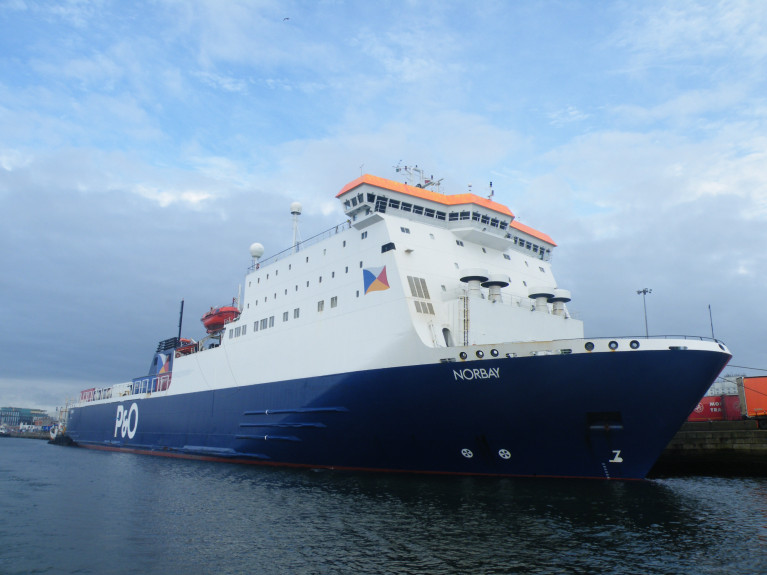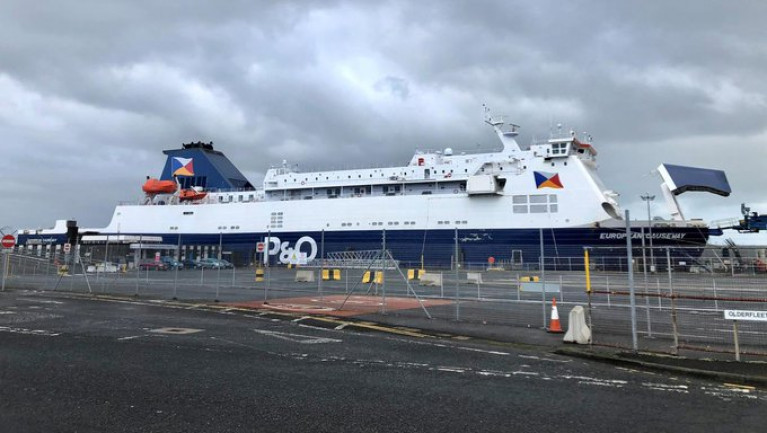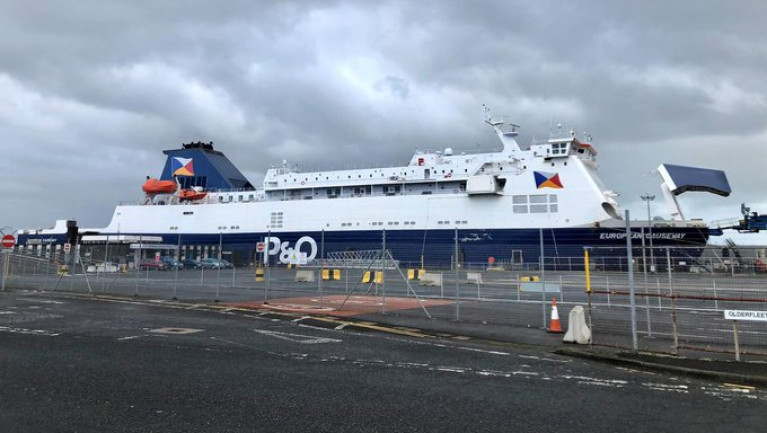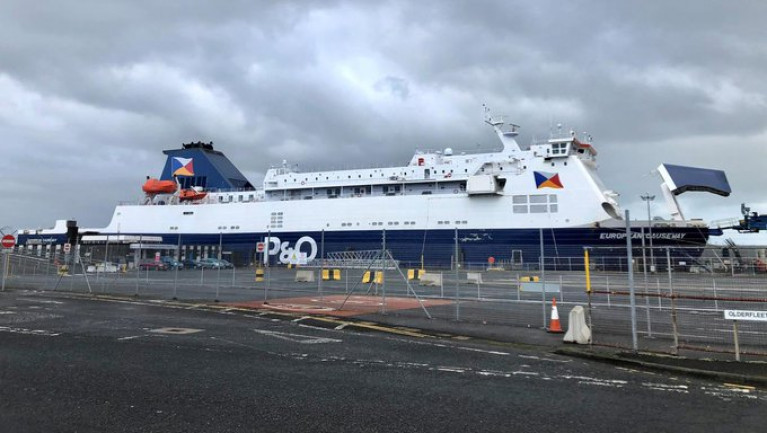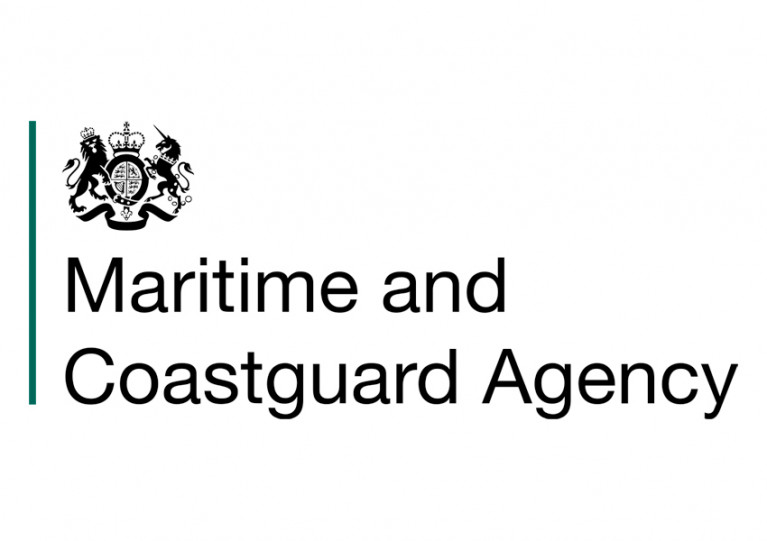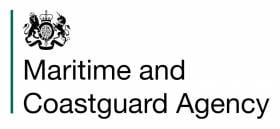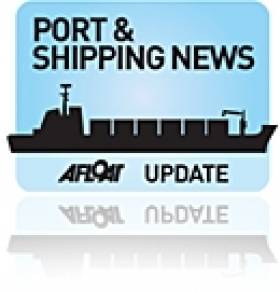Displaying items by tag: MCA
Storm Isha Was One Notch Away from 'Hurricane Force' in the Irish Sea - With Little Respite as Storm Jocelyn Sweeps In
It was so stormy on the Irish Sea during Storm Isha that the shipping forecast had put the weather conditions just one notch away from being categorised as hurricane force, it has emerged.
While on land, Storm Isha interrupted electricity supplies to about 50,000 residential customers and businesses, in addition numerous roads had been made impassable to motorists due to debris and fallen poles and trees.
One motorist died as a result of a collision with a collapsed tree.
Flights mainly at Belfast City Airport, located on the south side of Belfast Harbour, saw a large number cancelled and with some air-planes diverted. While on the Irish Sea, ferry firm Stena Line which was operating the E-Flexer class Stena Estrid was forced to circle off Belfast Lough for several hours as Afloat tracked before it could approach the Ulster coast and berth at the port.
According to the UK’s Maritime & Coastguard Agency (MCA) which told the News Letter, that the shipping forecast at the time indicated conditions up to and including “violent storm 11” on the Beaufort Scale.
This weather system which is a kind of maritime Richter Scale, is used to estimate the severity of wind strength and wave heights.
"It only goes up to 12,” said Ian Graham of the MCA, adding that such a state is “unusual” and he added the next stage up from “violent storm 11” on the Beauford scale is “hurricane”.
More here on the weather successive storms.
Twin dual-fuel powered ferries being built at Ferguson Marine shipyard on the Clyde are facing further delays after demands for design changes by the safety regulator.
According to the Maritime and Coastguard Agency (MCA) doors will have to be modified and extra staircases installed on both the M.V. Glen Sannox and the unnamed Hull 802.
Both newbuilds, with around 1,000 passengers each, are to serve CalMac's Ardrossan-Brodick (Arran) route, were to have scheduled sea trials, however they will now be delayed until the first few months of 2024.
The Glen Sannox which was launched in 2018, is due to enter service on CalMac's busiest route, by the end of 2023 while the Hull 802 is not set to take to water with passengers until summer 2024.
Managing director of the Inverclyde shipyard, David Tydeman at Holywood, told the Scottish Parliament's transport committee that he hopes to reach a final agreement with the safety regulator within the next two weeks
.
STV News has more on this latest development affecting the timeframe of the newbuild's delivery into service.
More Ferries from P&O's Irish Sea Fleet Inspected as Firm Bids to Resume Normal Operations
A further two ships of the P&O Ferries fleet are being inspected as the company attempts to resume normal operations after sacking nearly 800 workers.
The Maritime and Coastguard Agency (MCA) said it began assessing European Highlander on Thursday and Norbay yesterday.
P&O Ferries suspended most of its sailings after replacing 786 seafarers with cheaper agency staff on March 17.
European Highlander normally operates between Larne in Northern Ireland and Cairnryan in Scotland, while Norbay serves the Dublin-Liverpool route.
A total of eight P&O Ferries vessels will be examined by the MCA through the Port State Control regime.
RTE News has more on the Irish Sea route ferries in addition to the rest of the fleet, some still detained from UK-mainland Europe services.
As Afloat reported earlier, the North Channel route's second ship, European Causeway following an MCA inspection resumed service last week.
Survival Craft on P&O ferry Among 31 Safety Failure Concerns
According to a new report, there was an inability to safely deploy lifeboats or life rafts on a P&O Ferries vessel that was one of 31 failures discovered.
Inspectors for the Maritime and Coastguard Agency (MCA) found that the “launching arrangements for survival craft” on European Causeway were “not as required”.
The ship has two lifeboats and several life rafts for use in emergencies.
Among other flaws identified by the MCA were an inflatable evacuation slide not properly maintained, inadequate fire prevention systems and crew having a lack of familiarity with radio equipment.
There were also problems with labour conditions, navigation and documentation.
The Paris Memorandum of Understanding (MOU) – an alliance of 27 national maritime authorities, including the UK – listed the 31 safety deficiencies but did not provide further details.
Analysis by the PA news agency revealed more failures were found than in any of the other 46,000 Port State Control inspections of ships within the Paris MOU in the past three years.
P&O Ferries was widely condemned after sacking nearly 800 seafarers without notice on March 17 and replacing them with cheaper agency staff.
The firm suspended most of its sailings, including by European Causeway on the Northern Ireland-Scotland route.
For further reading, the Independent has more.
Ferry Firm P&O Plans to Resume Sailings after Sacking 800 Crew & Replace With Cheaper Agency Staff
The operator P&O Ferries has announced it is preparing to restart sailings “from this weekend” on routes suspended since it sacked nearly 800 seafarers.
As Independent.ie writes, the firm revealed plans to resume operations for four of its ships.
It has been prevented from running all but one of its vessels since it announced widespread redundancies on March 17.
It has already resumed Dublin to Liverpool sailings.
The company sparked outrage by replacing its crews with cheaper agency workers, without notice.
A spokesman for the firm said: “From this weekend, P&O Ferries are getting ready to resume services across a number of vital routes.
“P&O has been working closely with regulators to ensure our ships are safe to sail.
“P&O is looking forward to welcoming back vital services and we expect to have two of our vessels ready to sail on the Dover/Calais route by next week, subject to regulatory sign-off, namely both the Pride of Kent and Spirit of Britain between Dover/Calais.
More from the newspaper in addition BBC News coverage on the Strait of Dover service as the ferries will need to pass inspections by the Maritime Coastguard Agency (MCA) before services can resume.
Ship Detained in Larne after P&O ferry is Deemed ‘Unfit to Sail’
Operator P&O Ferries which has a ship on the North Channel route has been detained in Larne Port for being “unfit to sail”.
The vessel European Causeway reports Belfast Telegraph, has been held in the Northern Ireland port due to “failures on crew familiarisation, vessel documentation and crew training”, the Maritime and Coastguard Agency (MCA) said.
Transport Secretary Grant Shapps said he will not compromise the safety of P&O vessels and insisted that the company will not be able to rush training for inexperienced people.
A spokesperson for the Maritime and Coastguard Agency said: “We can confirm that the European Causeway has been detained in Larne.
“It has been detained due to failures on crew familiarisation, vessel documentation and crew training.
“The vessel will remain under detention until all these issues are resolved by P&O Ferries. Only then will it be reinspected.”
The MCA said there were no passengers or freight on board the European Causeway vessel when it was detained.
For much more on the this story from the Co. Antrim ferryport click here.
UK’s Maritime & Coastguard Agency Targets Uncoded Race Yachts
The UK’s Maritime and Coastguard Agency (MCA) says it wants “to send a clear message” to owners and operators of commercially operated yachts that their vessels — including those engaged in racing — must be coded.
The message comes after the MCA agreed to discontinue prosecution against the owners of two yachts, Scarlet Oyster and Playing Around, under the condition that both enter into a written agreement to ensure their vessels are coded when engaged in any commercial activity.
Small, commercially operated yachts must hold a valid code certificate when being used for any commercial purposes, including racing and training, while vessels must also only operate within the category of water for which they have been authorised.
A failure to comply will result in enforcement action, with the MCA saying it is committed to maintaining the rigorous standards of the UK flag.
Despite initiatives to address concerns raised in 2019, such as the publication of an information leaflet and officers attending Gran Canaria for the start of the ARC, investigations were begun into several yachts.
The Regulatory Compliance Investigation Team found a number of breaches, resulting in the owners receiving official cautions, paying several thousands of pounds in intervention costs to the MCA and ensuring their vessels were coded for future commercial use.
Other yachts were sold or removed from the UK flag and are no longer entitled to be UK-registered.
Mark Flavell, lead investigator at the MCA as part of the Regulatory Compliance Investigations Team, said: “A misinterpretation of the code concerning yachts engaged in racing had developed. The MCA want to send a clear message and dispel this misinterpretation.
“Commercially operated vessels, including those engaged in racing, must be coded. This is to ensure commercial vessels are subject of an independent survey and inspection regime. The aim being, as with any scrutiny of commercial operations, is to keep employees and public safe.
“We will not hesitate to take enforcement action against yacht owners who don’t want to hear this message and fail to get their yacht coded.”
The company that runs the Clipper Round The World Yacht Race has called for an independent inquiry into the official investigation of the death of a sailor during the most recent edition of the race.
Clipper Ventures have blasted UK’s Maritime and Coastguard Agency (MCA) and Marine Accident Investigation Branch (MAIB) for “failure of professionalism, impartiality and honesty” in their parallel probes of the overboard incident in the Southern Ocean that cost the life of 60-year-old retired solicitor Simon Speirs on 18 November 2017.
Despite his being tethered to the boat, as Clipper Ventures says, a “freak failure” of a tether safety clip led to Speirs entering the water as he was helping to reduce sail on board the yacht CV30, also known as GREAT Britain, amid increasing winds and sea state.
Spears was recovered from the sea by his fellow crew but could not be resuscitated. He was given a burial at sea the following day.
Clipper Ventures says the conclusions of investigations by the MCA and MAIB into the incident “are the cause of considerable concern” and involve “multiple errors and distortions of the truth” — including a suggestion by an MCA official that a nearby vessel could have taken Speirs’ body home to the UK for burial, when no such vessel existed.
Clipper Ventures also says it suspects that “significant and improper influence was applied to the MAIB investigation by the MCA team” in the bodies’ parallel investigations.
As of 1pm on Sunday 11 August, the MCA and MAIB have not released comment on Clipper Venture’s claims.
The UK’s Maritime and Coastguard Agency (MCA) wants to hear recreational boaters’ views on six draft Marine Guidance Notes (MGN) concerning guidance on boat safety over the next few weeks.
RYA cruising manager Stuart Carruthers said: “The MCA has launched this consultation following the Cheeki Rafiki trial where the judge commented that there were aspects not covered by the construction standards for small commercial vessels which should be considered best practice.
“The RYA already provides a considerable amount of safety advice that is readily accessible by the boating public and intends to submit a full response, outlining our views and the concerns of our members.
“Our response will focus on the interests of pleasure boaters with the aim of ensuring that any guidance is clear, realistic and proportionate.”
The six notices cover guidance on keel groundings, rigging inspections, preparedness, stowage of lifesaving gear, vessel resilience and emergency procedures, and maintenance, modifications, damage and repairs.
They are aimed at both small commercial vessels as well as pleasure boats.
The MCA states that it wishes to reinforce to owners, managing agents and skippers of both commercial and pleasure vessels what it considers good practice in terms of safety when going out to sea.
Boaters’ views are sought in the following areas:
- Whether the draft notes contain guidance that is realistic to carry out in practice
- What other costs and benefits there might be that haven’t been included in the de minimis assessment
- If there is the right level of content in each MGN
Full details on the draft MGNS and how to give your views can be found on the UK Government website. A full list of consultation questions is contained in Section 5 of this consultation.
The consultation closes on Thursday 18 July and the RYA encourages all UK boaters to respond.
Ireland-Libyan Livestock-Carrier Remains Detained following ‘Post-Repair’ Sea Trails
#Cattleships- Express 1, an Ireland-Libya serving livestock-carrier which was detained in February by the UK's Maritime and Coastguard Agency (MCA) has this week been on 'post-repair trails' in the English Channel, writes Jehan Ashmore.
Having anchored overnight off the Cornish port, the Express 1 returned to Fowey this morning after a two-day inspection at sea of the 7,087 tonnes vessel. This was part of the requirments of the inspection as agreed by MCA surveyors.
Commenting to Afloat.ie, a spokesman for the Maritime and Coastguard Agency said: "The Express 1 remains under detention at Fowey following an inspection yesterday. The operator has made some safety improvements, but there are still some issues".
"Further maintenance work will take place to ensure the ship meets safety standards. We will reinspect it once the maintenance work is complete."
As previously reported, Express 1 while on a passage through the English Channel from Germany in February encountered engine-failure in stormy seas and was taken under tow to Fowey. Arising from the incident, there were calls to the Irish Department of Agriculture to revoke the ships livestock-license.
The 100m Express 1 last year she became the first ship to revive the live cattle-trade from Ireland to Libya, such exports have not taken place since 1996, when Libya banned beef imports from the EU, following the outbreak of (BSE) mad cow disease.
On that inaugural sailing she loaded cattle at Belview Port, the main terminal for the port of Waterford from where animal welfare groups protested.
A sister, Atlantic M, earlier this week had docked at Belview Port and the vessel remains at anchorage today off Dunmore East. She was a former vehicle-carrier the Autotransporter and likewise of Express 1 as the Autoline, they originally operated for Hoegh Ugland Auto-Carriers.
The pair later began a career for United European Car Carriers (UECC) and the sisters continued to make frequent calls to Irish ports.



























